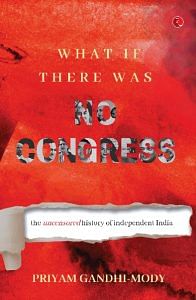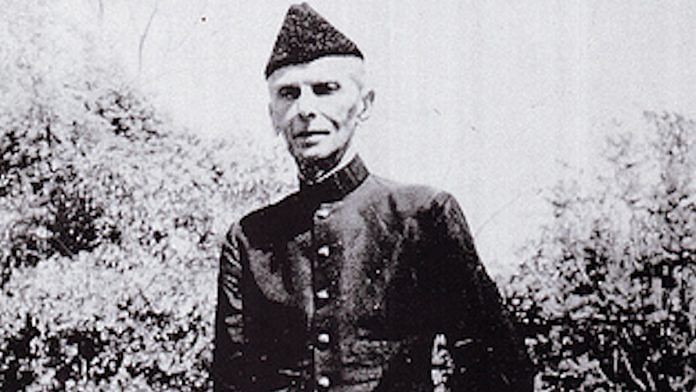In the years between 1914 and 1920, Jinnah and Gandhi, who had remarkably similar backgrounds, had personal clashes that cemented the enmity that ended up eventually dividing the Indian subcontinent. There is a famous party that took place in 1914 for Gandhi when he stopped over in London after returning from South Africa, in which Jinnah was also present. It is believed that this is where the two gentlemen first met and had a conversation, presumably on Indian politics. Two years later, they met once again, this time at a party thrown by Gokhale at Jinnah’s house in Bombay, and here is where the first signs of sparks began to surface. At this party, where Jinnah was the host, Gandhi took the stage at one point and said of Jinnah, ‘I am so pleased to see that not only is a Muslim part of the Congress but that he is in charge of this branch of it.’
Jinnah found these remarks rather condescending because not only was he Gandhi’s senior, he had also been able to make quite a bit of progress in fighting the British in court and in making a name for himself. But Gandhi completely minimized him to being just a ‘Muslim’ than recounting any of his other remarkable achievements.
Once again, at the Nagpur session of the Congress in 1920, Jinnah tried to make an agitated plea referring to Gandhi as Mr Gandhi instead of Mahatma but was quickly heckled and shut down by Gandhi’s supporters in the audience. For thin-skinned Jinnah, being interrupted by his junior colleague’s supporters was too much of an insult to take in. He then began to fade out of the Congress, although he did remain involved on and off until as late as 1928.
He quickly realized that in front of the godly status that Gandhi had begun to acquire among the party members and supporters due to his focus on Hindu revivalism, his own secular thoughts stood no chance. Famously, in as late as 1924, he said, ‘Foreign rule and its continuance is primarily due to the fact that the people of India, Hindus and Muslims, are not united and do not sufficiently trust each other.’
Soon after, he left for England to practise law before the Privy Council and amassed great wealth as a successful barrister. He had a house in Hempstead Heath and a thriving social life. He did dabble in stocks on the London Exchange and some real estate business, but his heart lay in Indian politics of the time. In 1933, Liaquat Ali Khan, another Muslim Leaguer and a long-time fan, met him at his house while the latter was on his honeymoon.
During their conversation, Khan described to Jinnah the sorry state of the Muslim League and pleaded with him to come and lead it. Jinnah responded by asking Khan to see if he could muster sufficient support for his leadership. Forty-eight hours after returning to India, Khan cabled a single word to Jinnah—‘Come’. However, it wasn’t until 1935 that he sold his assets in London and returned to India.
During his stint in Britain, Jinnah grew increasingly arrogant and self-serving. Many, including Nehru, believed that he possibly even took up the League leadership to get back at the Congress that had deprived him of what he believed was deservingly his. Maybe he did, maybe he didn’t—there was no way to read Jinnah’s mind—but one of the gravest errors the Congress leadership made was to underestimate his intentions and abilities. It is this misjudgement of Jinnah’s character that led Nehru to make mistakes while dealing with him in the years 1939–48.
Several people had several opinions of Jinnah, but the one thing that everyone seemed to concur with was that Jinnah had a fragile ego and he liked to win, at any cost, famously by trapping his opponents in details. Between mid-1920s and mid-1930s, Jinnah’s personal affairs made news, which included a close friendship with Sarojini Naidu who was all praise for him (she incidentally was the Congress’s first female president with Gandhi’s support) and then with a second marriage at the age of 40.
Rattanbai (Ruttie) Petit was all of 17 and a daughter of one of Jinnah’s Parsi business associates. The couple eloped, and it was only when news of her having converted to Islamic faith was published in The Times of India that her father got to know of the marriage.25 The couple had a daughter together and, shortly after, their marriage came to an end. Not too long after that, in 1928, she was found dead in a hotel room in Bombay’s Taj Mahal Hotel.
At the same time, Ramsay MacDonald, a Labour Party leader with whom Jinnah had a good rapport, became the PM of Great Britain. Jinnah immediately wrote to him, suggesting that Britain should commit to transferring governance to India under dominion status. He advised the PM that this would deflate the Congress, which was gunning for Independence. He also recommended that His Majesty’s Government (HMG) convene a round-table conference with participation of British and Indian leaders to discuss India’s future constitutional advances.
In a private reply, PM MacDonald agreed that dominion status for India should be the goal. Jinnah felt heard and inspired. It was at one of these round-table conferences that he took note of Sir Sultan Muhammad Shah, Agha Khan III, founder of the All-India Muslim League. He noticed how, by cooperating with the British, Khan was able to not only further his own interests but also the interests of the Khoja sect—a sect both belonged to and whose members were successful in setting up business establishments and shops throughout the Empire.

This excerpt from Priyam Gandhi-Mody’s ‘What if There Was No Congress: The Uncensored History of Independent India’ has been published with permission from Rupa Publications



